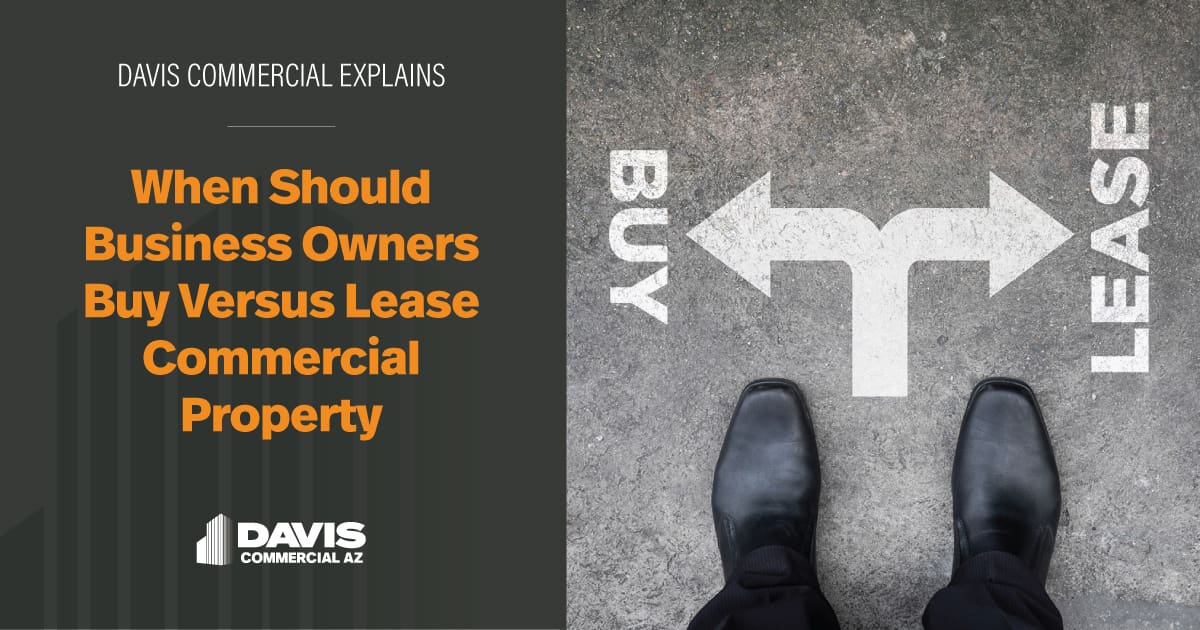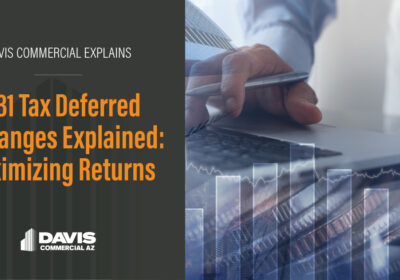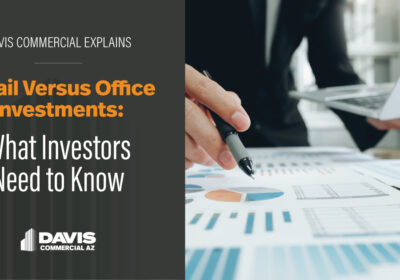When Should Business Owners Buy Versus Lease Commercial Property

To buy or not to buy, that is the question. When business owners are tasked with finding a space to run operations, it is wise to consider purchasing versus leasing. This decision is largely dictated by one’s financial standing. While purchasing a commercial property may seem like a pipedream, it’s valuable to weigh the pros and cons with a reputable buyer representative and financial advisor to explore the options available. For some business owners, it’s surprising to learn that commercial property ownership is not only achievable, but it could potentially be the best option.
There are a variety of benefits to purchasing commercial space versus leasing. Here are some of the most common advantages:
- Equity Buildup: When investing in a commercial space, you are building equity as the mortgage is paid down and the property appreciates. This can provide long-term financial benefits over time and provide more security in retirement planning
- More Potential for Fixed Costs: When purchasing a commercial space, buyers no longer face the threat of increasing rent. It is also common to get a fixed rate on up to 90 percent of the mortgage loan through SBA financing, which keeps monthly payments from rising. Furthermore, when the loan is eventually paid off, monthly payments are eliminated altogether. Having predictable monthly costs enables business owners to better plan and budget for their long-term finances.
- Greater Control: Becoming a proprietor of a commercial space provides greater control over the property, which can provide more flexibility in terms of modifications, renovations, and other improvements. There’s also the potential to earn additional revenue by leasing out unused space within the building.
- Tax Benefits: As a property owner, there’s the opportunity to take advantage of various tax benefits, such as mortgage interest deductions, property tax deductions, depreciation and cost segregation.
- Investment Opportunity: Owning commercial space can be a wise investment opportunity, as it provides the potential for appreciation in value, long-term financial benefits, and as previously mentioned, the opportunity to add additional income stream and build wealth via leasing unused space.
It is crucial to carefully consider the advantages and disadvantages of purchasing commercial space versus leasing. The decision ultimately depends on your unique business needs, financial situation and long-term goals.
Here are some of the well-known advantages to leasing a commercial property:
- Lower Upfront Costs: Leasing commercial space typically requires lower upfront costs than purchasing, as a large down payment or taking out a mortgage is not required. This can make leasing a more affordable option, particularly for small businesses or startups with limited capital.
- Flexibility: Leasing commercial space can provide greater flexibility in terms of location, size, and lease term. This can be particularly beneficial for businesses that are just starting out and may not yet have a clear idea of their long-term space needs.
- Maintenance and Repairs: Tenants are not typically responsible for maintenance and repairs to the property, these usually fall under the responsibility of the landlord, depending on the lease type. This can save both time and money, particularly for businesses that do not have the resources to perform maintenance and repairs on their own.
- Reduced Risk: Leasing commercial space can help mitigate the risks associated with owning a property, such as market fluctuations, property value depreciation, and unexpected repair costs.
- No Resale Risk: Tenants do not have to worry about the resale value of the property, as this is the responsibility of the landlord. This can provide more peace of mind and less financial risk.
To learn more about the advantages of commercial real estate ownership versus leasing, check out “Simply Own It! The American Dream,” by our own Andrea Davis, CCIM. The book discusses key factors to consider, how the purchasing process works, and shares insights from other business owners. Once you’ve determined what makes the most sense for your personal and professional goals thanks to the help of a reliable and trustworthy CRE professional, you can take the next step in the search for new space.
It’s paramount to seek a professional agent or broker with in-depth market knowledge and information on the history of the properties being considered. A buyer representative will serve as a guide throughout the process and help manage expectations. At Davis Commercial AZ, our team of experts is well-seasoned in helping businesses through the decision-making process, safeguarding the negotiation process, and making it manageable and fun. Get in contact here to learn more about our services and reap the benefits of having an experienced representative in your corner.
Related Posts

TSMC, California Relocations & Phoenix Commercial Real Estate Growth
Phoenix commercial real estate continues to attract national attention as major employers and corporate relocations…

Why a Build-To-Suit May Be a Smart Choice for Businesses
Elevated interest rates, selective lending and mixed signals in national headlines have created confusion about…

1031 Tax Deferred Exchanges Explained: Maximizing Returns
As businesses grow and operations evolve, so do their property needs. The need for new…

Retail Versus Office Investments: What Investors Need to Know
Not all commercial real estate properties are created equal. Whether you’re eyeing a retail center…
